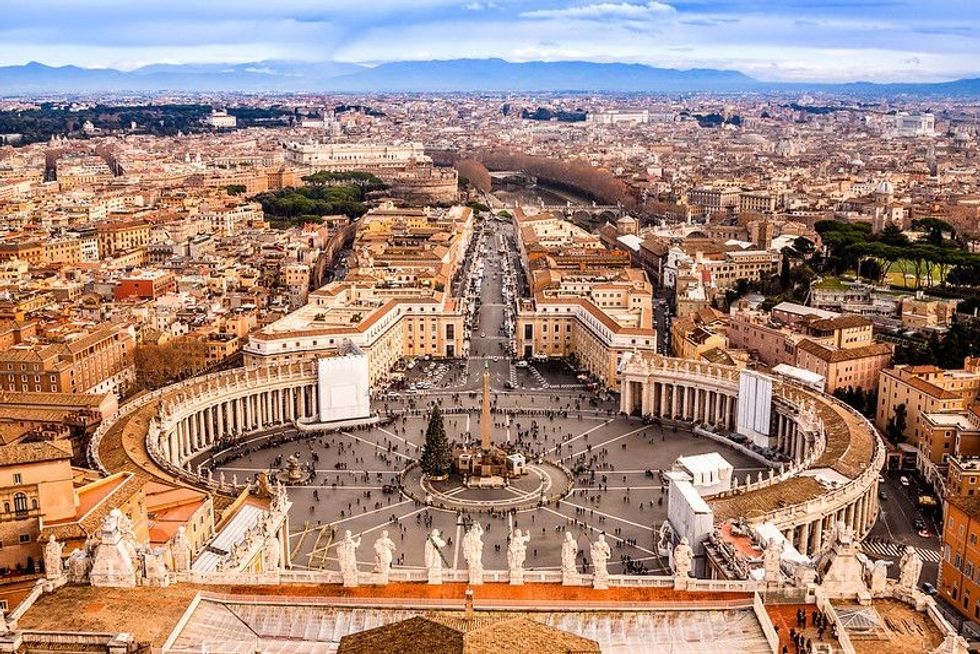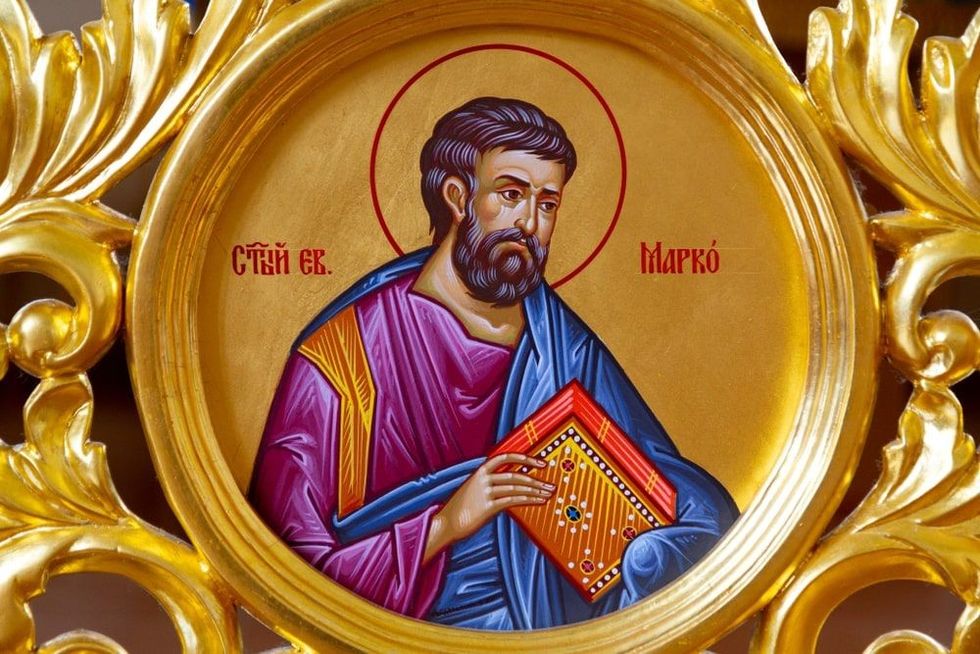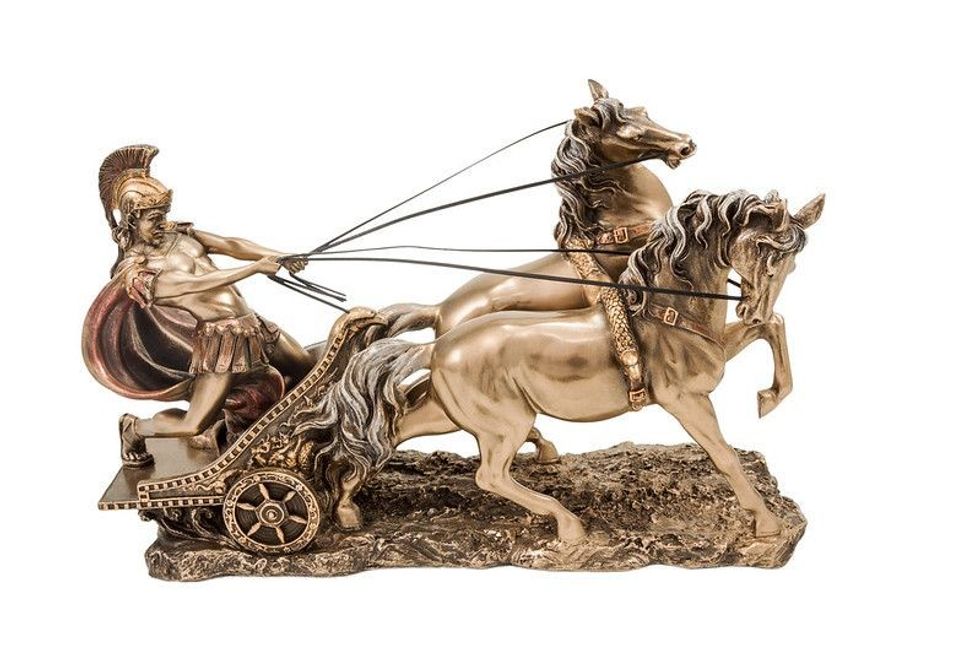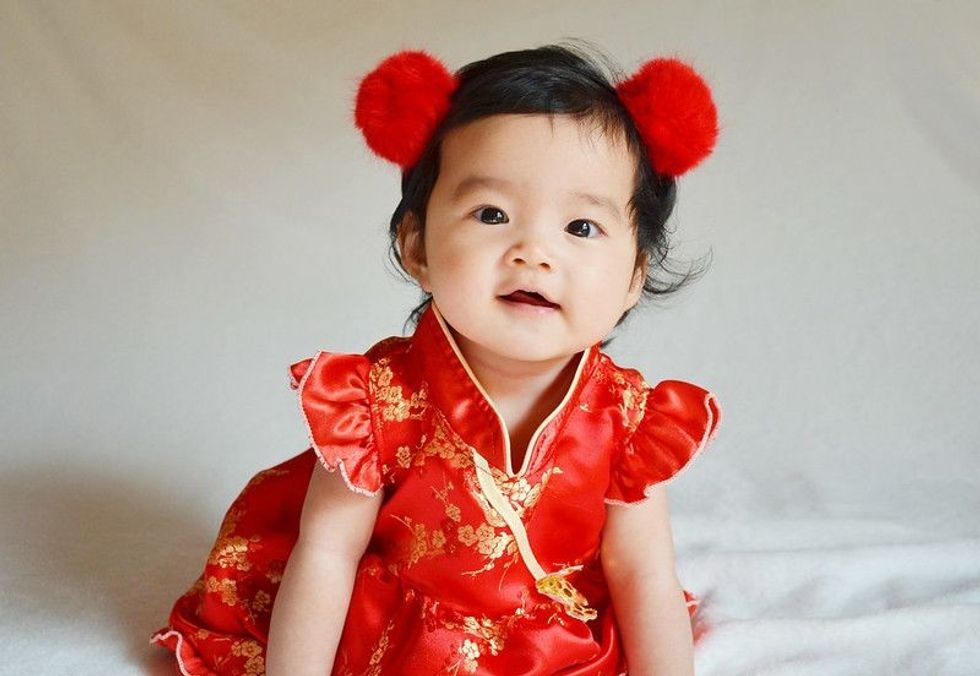

There is a lot of similarity between the Byzantines and the Romans, as the people of Byzantine empire were inspired by the living of the Western Roman Empire.
The fall of the Roman Empire's eastern regions was the continuation of the Byzantine empire. The Byzantine empire was located at the European side of the Bosporus.
If you liked our suggestions for the Byzantine Names, you can also have a look at our articles on Ancient aramaic names and Mesopotamian names.


The capital of Byzantine was Constantinople. The list given below is the names of the Byzantine emperors and their courtiers that can be chosen by the parents as their son's names.
27. Alexander (Greek and Byzantine origin) meaning "to ward off" or "turn away".
28. Alexios (Greek and Byzantine origin) meaning "defender".
29. Alexius (Greek and Byzantine origin) meaning "protector". The name was very common in the later period Byzantine Empire.
30. Anastasius (Greek and Byzantine origin) meaning "resurrection".
31. Andronikos (Greek and Byzantine origin) meaning "male victor".
32. Andronicus (Greek and Byzantine origin) meaning "warrior".
33. Antigonos (Greek and Byzantine origin) meaning "against" or "compared to".
34. Antonius (Greek and Byzantine origin) meaning "priceless".
35. Antony (Greek and Byzantine origin) meaning " flower".
36. Arcadius (Greek origin) meaning "one born in Arcadio".
37. Arethas (Greek and Byzantine origin) meaning "virtuous".
38. Asylaion (Greek and Byzantine origin) meaning "lion".
39. Basil (Greek and Byzantine origin) meaning "brave" or "fearless".
40. Basiliscus (Greek and Byzantine origin) meaning "little king".
41. Basiliskianos (Greek and Byzantine origin) meaning "humble". Basiliskianos was the companion of Byzantine Emperor Basil I.
42. Belisarius (Greek and Byzantine origin) meaning "dart of Ares". Belisarius was the Byzantine Empire's general.
43. Callinicus (Greek and Byzantine origin) meaning "beautiful victor".
44. Christopher (Greek and Byzantine origin) meaning "Christ" or "Anointed".
45. Constantine (Greek and Byzantine origin) meaning "constant".
46. Constantius (Greek and Byzantine origin) meaning "continuous".
47. Damianus (Greek and Byzantine origin) meaning "to tame" or "subdue".
48. David (Greek and Byzantine origin) meaning "beloved".
49. Demetrios (Greek and Byzantine origin) meaning "devoted to Demeter".
50. Demetrius (Greek and Byzantine origin) meaning "a tribute to Goddess of Grain".
51. Diocletian (Greek and Byzantine origin) meaning "glory of Zeus". Diocletian was the emperor of the Roman Empire.
52. Diocles (Ancient Greek and Byzantine origin) meaning "glory of God".
53. Eustathios (Greek and Byzantine origin) meaning "well-built".
54. Euthymius (Greek and Byzantine origin) meaning "good cheer".
55. George (Ancient Greek and Byzantine origin) meaning "earth" or "soil".
56. Heraclius (Greek and Byzantine origin) meaning "hero". Heraclius was the name of the Byzantine emperor of the 7th century.
57. Heraclonas (Greek and Byzantine origin) meaning "Little Heraclius".
58. Himerius (Greek and Byzantine origin) meaning "Qualities of a leader". Himerius was a Greek sophist
59. Ignatios (Greek and Byzantine origin) meaning "fiery one".
60. Isaac (Greek and Byzantine origin) meaning "will laugh".
61. John (Greek and Byzantine origin) meaning "YHWH has been gracious".
62. Julian (Greek and Byzantine origin) meaning "young at heart".
63. Justinian (Greek and Byzantine origin) meaning "fair" or "righteous".
64. Justin (Greek and Byzantine origin) meaning "righteous".
65. Leo (Greek and Byzantine origin) meaning "lion".
66. Leontius (Greek and Byzantine origin) meaning "lion".
67. Licinius (Greek and Byzantine origin) meaning "bent and turned upward".
68. Manuel (Greek and Byzantine origin) meaning "God with us".
69. Michael (Greek and Byzantine origin) meaning "Who is like God".
70. Mousoulios (Greek and Byzantine origin) meaning "soldier".
71. Nicholas (Greek and Byzantine origin) meaning "victory of the people".
72. Nikephoros (Greek and Byzantine origin) meaning "bringer of victory".
73. Nicephorus (Greek and Byzantine origin) meaning "Bringer of Victory". A common name in the Byzantine era.
74. Nikephora (Greek and Byzantine origin) meaning "dear to Saturn".
75. Niketas (Greek and Byzantine origin) meaning "victorious one".
76. Nicetas (Greek and Byzantine origin) meaning "victory".
77. Petronas (Greek and Byzantine origin) meaning "ruler". Was the general from the Byzantine empire.
78. Philaretos (Greek and Byzantine origin) meaning "lover of virtue".
79. Philippicus (Greek and Byzantine origin) meaning "into the city".
80. Romanus (Greek and Byzantine origin) meaning "from Rome". Is a popular name from the ancient Roman empire.
81. Stauracius (Greek and Byzantine origin) meaning "a better friend". Was an emperor from the Byzantine empire.
82. Theophano (Ancient Greek and Byzantine origin) meaning "to appear".
83. Valens (Greek and Byzantine origin) meaning "strong". Was an emperor from the Roman empire.
Byzantium is also as known Byzantine and is located on the European side of the Bosporus. Some of the common names in the Byzantine Empire are Agatha, Alexius, and Andronikos. If you want to have information on the Byzantine surnames, the list below will fulfill your requirement.
84. Bringas (Greek and Byzantine origin) meaning "unexplained".
85. Choniates (Greek and Byzantine origin) meaning "victorious one". Niketas Choniates was the emperor of the byzantine empire
86. Comnenus (Greek and Byzantine origin) meaning "noblemen". Was one of the most popular Byzantine noble families.
87. Cydones (Greek and Byzantine origin) meaning "intelligent". The surname is also written as Kydones and one of the renowned names is Demetrios Kydones who was a Byzantine theologian.
88. Doukas (Greek and Byzantine origin) meaning "duke". Was a surname of a family of imperial rank from the Medieval Byzantine empire.
89 Ducas (Greek and Byzantine origin) meaning "leader".
90. Lascaris (Greek and Byzantine origin) meaning "warrior", or "soldier".
91. Maleinos (Greek and Byzantine origin) meaning "homeland". Was the last name of a Byzantine Greek family.
92. Phokas (Greek and Byzantine origin) meaning "seal (animal)".
93. Prodromus (Greek and Byzantine origin) meaning "forerunner".
94. Psellos (Greek and Byzantine origin) meaning "the stammerer". Michael Psellos was a Byzantine Greek monk.
95. Tzimiskes (Greek and Byzantine origin) meaning "red boot".
The three names of the Byzantine empire are Byzantion, Byzantium, and the Eastern Roman Empire. As per the Byzantium history, we have compiled the byzantine city names for you, so that you can know the Empire more deeply.
96. Alston, The city is located in Roman and Byzantine Egypt.
97. Bouras, The city is said to be the belonging of the Byzantine Empire.
98. Brown, Is one of the cities of Byzantine.
99. Brooks, The city is now a Castle of Northwest Greece.
100. Buchwald, The remains of the place give proof that it was an ancient city of Byzantine.
101. Brandes, It was one of the Byzantine cities in the 7th and 8th centuries.
102. Brubaker, The design and construction of the public spaces gives hint that it was an ancient city in early medieval Constantinople.
103. Dagron, The city is expected to be from the 7th to 12 centuries.
104. Finley, is an ancient Byzantine.
105. Jones, Was a city of the Later Roman empire.
Kidadl has lots of great baby name articles to inspire you. If you liked our suggestions for Byzantine names, last names, and place names then why not take a look at something different like Roman names for boys or Roman girl names.
Second image credit: Adam Jan Figel / Shutterstock.com





Bachelor of Arts specializing in French with Film Studies, Bachelor of Arts (Year Abroad) specializing in Literature, History, Language, Media, and Art

Georgia Stone Bachelor of Arts specializing in French with Film Studies, Bachelor of Arts (Year Abroad) specializing in Literature, History, Language, Media, and Art
Georgia is an experienced Content Manager with a degree in French and Film Studies from King's College London and Bachelors degree from Université Paris-Sorbonne. Her passion for exploring the world and experiencing different cultures was sparked during her childhood in Switzerland and her year abroad in Paris. In her spare time, Georgia enjoys using London's excellent travel connections to explore further afield.
Read the Disclaimer Fact Correction1) Kidadl is independent and to make our service free to you the reader we are supported by advertising. We hope you love our recommendations for products and services! What we suggest is selected independently by the Kidadl team. If you purchase using the Buy Now button we may earn a small commission. This does not influence our choices. Prices are correct and items are available at the time the article was published but we cannot guarantee that on the time of reading. Please note that Kidadl is a participant in the Amazon Services LLC Associates Program, an affiliate advertising program designed to provide a means for sites to earn advertising fees by advertising and linking to Amazon. We also link to other websites, but are not responsible for their content.
2) At Kidadl, we strive to recommend the very best activities and events. We will always aim to give you accurate information at the date of publication - however, information does change, so it’s important you do your own research, double-check and make the decision that is right for your family. We recognise that not all activities and ideas are appropriate for all children and families or in all circumstances. Our recommended activities are based on age but these are a guide. We recommend that these ideas are used as inspiration, that ideas are undertaken with appropriate adult supervision, and that each adult uses their own discretion and knowledge of their children to consider the safety and suitability. Kidadl cannot accept liability for the execution of these ideas, and parental supervision is advised at all times, as safety is paramount. Anyone using the information provided by Kidadl does so at their own risk and we can not accept liability if things go wrong.
3) Because we are an educational resource, we have quotes and facts about a range of historical and modern figures. We do not endorse the actions of or rhetoric of all the people included in these collections, but we think they are important for growing minds to learn about under the guidance of parents or guardians.